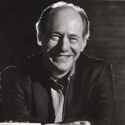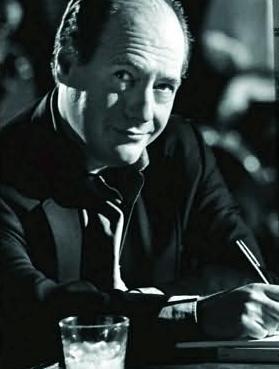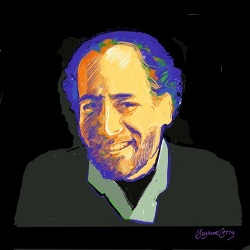
Gary Giddins
The Weather Bird Speaks
Matthew Moyer
Since he was neither as gonzo as Lester Bangs nor as infuriatingly smarty-pants as Robert Christgau, music critic Gary Giddins never attracted the same attention as did his contemporaries in rock-writing circles. Plus he wrote about jazz, a notoriously difficult subject for middle America to get its collective head around, to this day. And yet, for thirty years (1973-2003), Giddins wrote passionately and warmly about the music he loved every week in the celebrated “Weather Bird” column for The Village Voice. His appetite for the music was voracious; he was just as comfortable touting Louis Armstrong and Bix Beiderbecke as he was loudly praising the free jazz of Cecil Taylor, Ornette Coleman and John Coltrane. In point of fact, he was one of the few “mainstream” critics at the time to recognize free jazz for what it was – a revolution in sound and not just a bunch of noise, the mistaken critical consensus of the time. In addition to his column, Giddins wrote several books on jazz and film. His most celebrated work, Visions of Jazz, is widely considered one of the seminal works of long form jazz criticism. He’s even completed a textbook on jazz for colleges! Don’t worry, he’s not just some boring academic droning on about how jazz can’t get any better than Louis Armstrong’s Hot Fives so don’t even bother. To him jazz is still a living, vibrant art form that excites him now as much as it did when he was a young buck. He’s still listening, he’s still watching, and he’s still… writing a multi-volume biography of yer grandma’s favorite crooner, Bing Crosby??? Ink 19 sat down with Gary Giddins to talk about the shapes of jazz to come.

You maintain that jazz is disappearing from the public consciousness and popular media…
It’s not available on most radio around the country, and where it is available, it’s frequently a listener-sponsored station rather than a commercial station. Which means that record companies and musicians can’t advertise on it. They can’t really force consciousness of their work. But putting that aside, there isn’t even enough listener-sponsored jazz. If I lecture somewhere and I get the audience enthusiastic, it’s not like they can go home and put on a radio station. And you want to hear stuff before you buy it. There are online sites where you can download tons of stuff, but you have to know your way around. What I find rather disturbing is the absence of retail stores. So many of the musicians that I discovered when I was younger, I found shopping. You go to a store looking for a Stan Getz record, and then you find Erroll Garner. You’re looking for a Sonny Rollins record, and just to start a conversation, someone walks over and says, “What do you think about Pee Wee Russell?” Now, he’s about as different from Sonny Rollins as you can get, but I bought a Pee Wee Russell album. I don’t really see how that translates to the internet. I mean, I buy tons of stuff off Amazon and other sites, but it’s usually stuff I’m looking for specifically. And the other thing about the album was the covers themselves, you buy these things just for the covers.
Like the Blue Note records.
Yeah, totally. But it doesn’t exist. It’s not on television. There was more jazz on television when there were three networks than there is now with 200 cable stations. That’s a disgrace. I do not understand why somebody with money who wants to make money doesn’t start a 24-hour jazz cable station. It would be inexpensive to operate because there are thousands of hours of documentary footage which all of the filmmakers would be dying to have broadcast on the air. There’s also performance footage from European television, from American television, you could have live programs, you could have interviews. It would be so easy and so inexpensive to program it, and I think it would be very successful because it’s fun watching a lot of these musicians, especially when you get into the historical period. Show Ella Fitzgerald, Armstrong, Nat Cole. I mean I just don’t get it. I really don’t! I find it utterly confusing. There have been a couple of movie projects about jazz. But they tend to be fan-oriented and people just don’t get them.
What was the moment for you when you realized that jazz was the music that you wanted to cover?
When I listened to Armstrong’s 1928 recording of “Basie Street Blues,” I was so profoundly moved by it. I’d grown up with music, and my favorite piece was the “Mass in B Minor” by Bach and this music made me feel the same way, and for a fifteen-year old kid who’s taught to believe that these guys are marble-bust classics and this is just some entertainer… that was a profound moment for me and when I started to write about jazz that was the mission, to allow people to feel the power of this music, which fans always have. But it’s not always conveyed in the critical literature. That’s the one thing I’ve always attempted to do, to share my own enthusiasm. I don’t think you can be a critic on any subject, unless you’re extremely passionate because otherwise why would you do it? It’s not an easy way to make a living.
Do you still write every day?
I try. I have to get an early start, otherwise I’m dead. If I don’t get an early start, I don’t care what the deadline is, I’m pretty much lost for the day. So I try to start between 9:30 or 10 and keep going until about 1-1:30, break for lunch and if it’s on a deadline and I can get back to it, fine, otherwise I use the rest of the day for listening, reading or answering…. I’m a terrible email correspondent so it builds up for weeks. People get really touchy about that. I liked it back in the days when you wrote letters and people didn’t expect an instant response. You’d write a letter and wait, now you get an email and it’s like, “I haven’t heard back from you in three days!” What do you think? I’m only sitting here fielding emails?
In your time at The Village Voice, you were one of the few writers to recognize the artistic value and power of the free jazz movement. What were some of your first impressions of that music?
Oh, I found it absolutely thrilling. The first time I heard what we call the avant-garde jazz now was an Ornette Coleman album called Ornette! And I didn’t know what to make of it! First of all, I was very young, and when you’re young, you’re not only impressionable, but you’re humble. Somebody puts out a record, and the liner notes are by a famous composer, in this case Gunther Schuller, so you believe him, even if you don’t get it. So just like the first time I read Joyce or the Sound and the Fury, it was hard, you had to really work and it was worthwhile. And Ornette… it was the first time I ever heard a piece of music that was completely, mind-blowingly incomprehensible to me. And then I listened to it a few times, and suddenly the revelation is that it’s all melody. Ornette Coleman is one of the great melodists. What he doesn’t do is give you predictable harmonic cadences, so that you know subconsciously where the melody line is going to fall. And he doesn’t give you a precise 4/4, so you’re not tapping your foot. You have to constantly focus on the actual notes he’s playing or else you’re not going to get it at all. So that was very exciting to me. And as I started listening to Cecil Taylor and John Coltrane, the total emotion of it, the expressionistic directness of it, I found very exciting. But I also credit the fact that I was young enough to give it the time because when you’re older and you’re getting a million records in the mail, you put one thing on and it’s like “BLEARRRRRRGH,” you say, later. But when you’re 16-17 years old, you only have so many records, and you really will bury yourself in it.
Who are some new artists that you find really important in jazz right now?
In this book coming out in October called Jazz, for the last chapter “Jazz Today,” we decided that instead of dropping a million names which wouldn’t mean anything, we would take one figure and give his/her career as a representative career of a jazz musician today. And we chose a young guy in his early 30s now, named Jason Moran, a pianist and composer, and we analyzed two tracks from his album Modernistic. I think Jason Moran is somebody that people should know about. There are so many really gifted young players out there now. Josh Redman has been out there for awhile now, and Cassandra Wilson. They’re setting the standards of virtuosity, they’re changing the repertoire. Who have I heard lately? Bill Frisell’s been around for awhile, he’s an extraordinary guitar player. Oh! A young player that I wrote about recently in the New Yorker, Rudresh Mahanthappa. He’s American-born, raised in Colorado, but obviously he has an Indian heritage. For a long time he was just playing conventional American jazz, sort of influenced by Coltrane and other American musicians, but then he started seriously investigating Indian music, and he made an album last year called Kinsmen in which he collaborates with the virtuoso alto saxophonist Kadri Gopalnath. That is a breakthrough album. There aren’t as many breakthrough albums as there were maybe once upon a time, but the general level of playing is very good and there is, every month or two, something that just… Sonny Rollins has been around since the 40s, but his most recent record Road Shows has changed a lot of peoples’ minds about him. Because if you’re not in a major city where he performs, and you’re only relying on the records and you don’t really know what he does in concert… People who have listened to this album go, “Holy Christ, I did not know that that was!” When I reviewed Sonny in The Village Voice, every single time I reviewed him, I would get letters from people in the Midwest and other places saying, “Giddins, you’ve completely lost your mind! He hasn’t played well since 1959, you don’t know what you’re talking about.” And, you know, now they’re all like, “Oh. Now we get it.”
What are you records you’ve been listening to? Books you’ve been reading?
The last few books I read were Fallada’s Every Man Dies Alone, which is an astonishing novel that was written right after the war in just a few weeks and totally captures the complete paranoia of Nazi Germany. It’s a wonderful novel. I just read the new book on the Bataan Death March called Tears of Darkness. I’ve been re-reading a lot of things. Every year I always read something by Faulkner, and this time I went back to As I Lay Dying, which had never been one of my favorites. It’s much funnier and much deeper and much more composed than I had remembered it. It’s an extraordinary book. Anything Faulkner wrote between 1929 and 1940, all of it is worth reading. I just re-read Siddhartha for the first time since high school and Hesse, at the end of his life, wrote an introduction saying, “This is my most misunderstood book, because it’s frequently read by young people,” and it’s written by a fifty year-old. I’m telling you, now being at that age, he’s totally right. That is not a book for kids, it’s a book for middle age. I read a lot, I try to read a book most every week. What have I been listening to? Well, because of the work, I’ve been listening to tons of Stan Getz and Kenny Barron. The last gig Stan Getz ever had was in Copenhagen playing duets with Kenny Barron for four nights, and they’re now putting out seven discs of all of that. I’m writing the notes, and playing it day and night. Very powerful music. Getz had asked me to write his autobiography right before he died, the day we signed the contract was the day he succumbed to cancer. I’ve been listening to a lot of Art Tatum, because I want to write something about him. I’m constantly listening to him. Paul Motian, I’ve been listening to him a lot. There’s a new record that I like very much by Steve Kuhn, where he plays material associated with Coltrane but in a very different way. It’s on ECM, it’s a very good record. Bill Frisell’s History Mystery I listen to a lot lately.

Is there a common factor about a musician or artist that motivates you to go beyond just appreciating their work to writing a long form piece about them?
Yeah, I think the common thread is that art is art, and the artist who moves you to want to devote part of your life to writing about their life, it derives from this connection, this passion, you know? Armstrong changed my whole world. Charlie Parker, I also did a book about him for a similar reason. It’s a lot of work, especially to write a biography, which is a different thing, but it’s got to be somebody who you feel, first of all, has not been done justice to before, someone whose life is interesting enough that it will keep you enthusiastic and excited as you research, and somebody that you’re willing to live with. I won’t mention a name here, but there’s a famous entertainer who I was asked to do a biography of, and I just couldn’t do it. Because he’s just such an unpleasant son of a bitch! Even though I like his art. I just didn’t want to spend a few years having to hear stories about how many people he punched out and all that. So…
When you mention that part of the reason is wanting to do justice to the person, would that be a big reason behind your Bing Crosby biographies?
Absolutely, because Crosby is totally forgotten, completely neglected. I’ve gotten more letters on the Crosby book than anything else I’ve ever done. I’ve gotten tons of correspondence, most of it from older people, but a lot of it from just…. He does have a following out there, but most young people have no idea. You tell them that Bing Crosby outsold the Beatles and Elvis Presley, you’re talking Martian or something. They just don’t know who he was or what he represented to this country. First of all, I really love him as a singer, especially his early work. He was a great artist in many ways, and a great film comedian and a very gifted dramatic actor. Going My Way is a great film, well worth giving serious consideration to. It’s not the sentimental, easygoing, Irish twaddle that a lot of people think it is because they saw it as a kid. It’s a much deeper look at what the homefront was like during World War II. The way we want to see ourselves and the way we in fact see ourselves. It’s about generations, it’s complicated stuff and nobody has written about this material in that way. Or the way the Road movies satirize American imperialism. That’s what it’s about! It’s about these two guys going off to other countries, and treating the natives as their straight men, like they’re barely human! And we laugh at it, but at the same time that’s what American foreign policy is! There’s a lot to be said there. And also writing about Crosby was a way of dealing with the whole popular culture of the United States from to the 1920s into the 70s, a half-century, which is the period that I’m most interested in. You can trace Crosby during Prohibition, how he remade himself during the Depression, remade himself during World War II, didn’t completely remake himself in the Fifties, which is why I think he faded from public consciousness. That’s when Sinatra did remake himself. Sinatra became super-hip, jet set, very cool, raincoat over his shoulder, fedora. Whereas Bing suddenly seemed like an old guy, he seemed like your grandfather.
Comfy sweater…
Yeah, too comfy. But the irony is that it was Bing’s coolness that was the secret of his success. When everyone else was slightly hysterical, he was the epitome of laid-back. He was so cool it’s scary. Even in his real life, people say that when he was furious his blue eyes would turn turquoise, but nobody ever heard him raise his voice. He just walked out of the room. But for the most part he was just… certainly in his public persona, he was laid-back, he was cool, he was comfortable, he was where you wanted to be. People used to say he was successful because people thought they were Bing Crosby when they sang in the shower. The Fifties with Elvis and all that, it changed. Suddenly he seemed like from another age.
Do you think music criticism still fulfills an essential function in the popular culture?
No, I’m sorry to say. I do not understand why, because more people go to university today than ever before in history, there seems to be less of an interest in criticism. When I was a kid, there were so many middlebrow magazines that were all criticism and magazines like Harper’s and Esquire had whole back of the book sections of criticism. Now they have columns on money or picking up women or ethics or I don’t know what the hell it is! But the idea that every magazine would want to have a literary critic, a film critic, a music critic, it’s gone. And I don’t understand why. I really don’t. There is not a great love… my generation, we loved to read Esquire every month just to read Dwight MacDonald. I don’t think there’s anybody like that right now, who people follow.
Gary Giddins: http://garygiddins.com ◼












